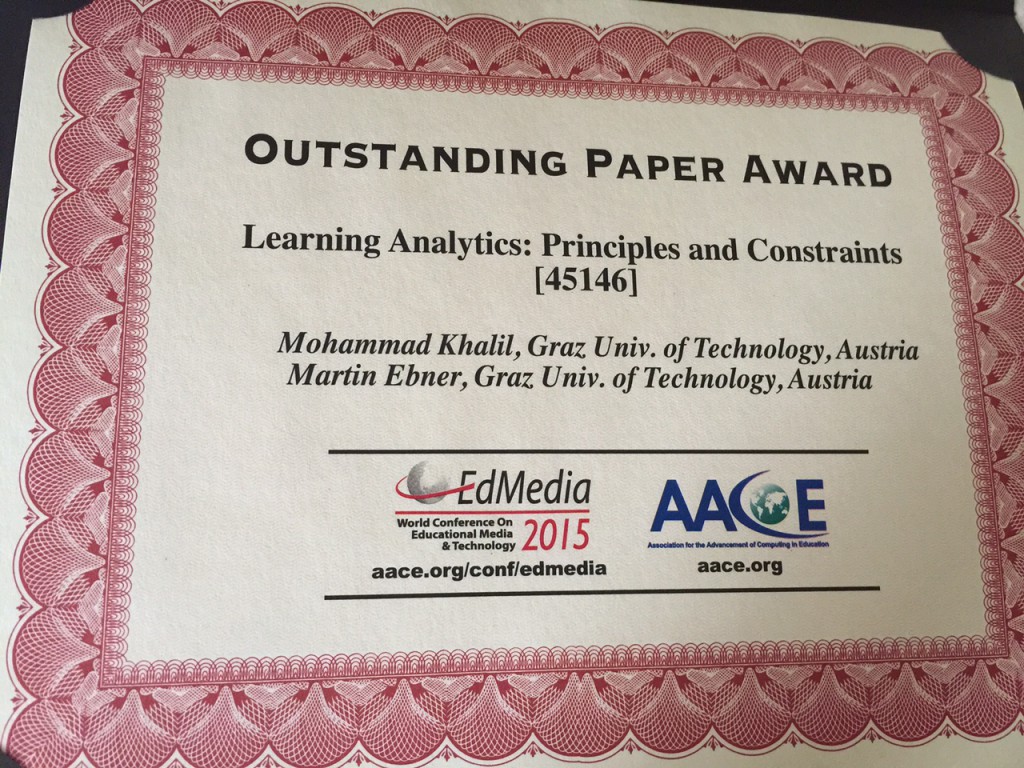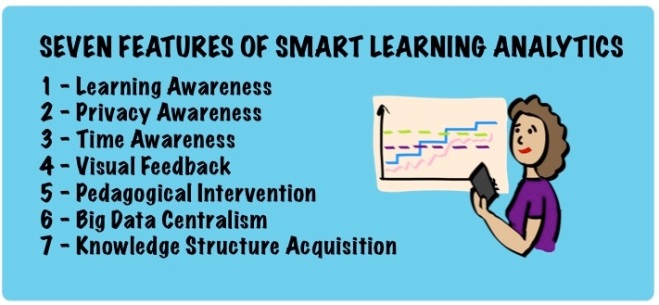Our publication about „Towards a Learning-Aware Application Guided by Hierarchical Classification of Learner Profiles“ is published as part of the Special Issue on Learning Analytics.
Abstract:
Learner profiling is a methodology that draws a parallel from user profiling. Implicit feedback is often used in recommender systems to create and adapt user profiles. In this work the implicit feedback is based on the learner’s answering behaviour in the Android application UnlockYourBrain, which poses different basic mathematical questions to the learners. We introduce an analytical approach to model the learners‘ profile according to the learner’s answering behaviour. Furthermore, similar learner’s profiles are grouped together to construct a learning behaviour cluster. The choice of hierarchical clustering as a means of classification of learners‘ profiles derives from the observations of learners behaviour. This in turn reflects the similarities and subtle differences of learner behaviour, which are further analysed in more detail. Building awareness about the learner’s behaviour is the first and necessary step for future learning-aware applications.
[Link to full article]
Reference: Taraghi, B., Saranti, A., Ebner, M., Müller, V., Großmann, A. (2015) Towards a Learning-Aware Application Guided by Hierarchical Classification of Learner Profiles, Journal of Universal Computer Science, vol. 21, no. 1 (2015), 93-109


